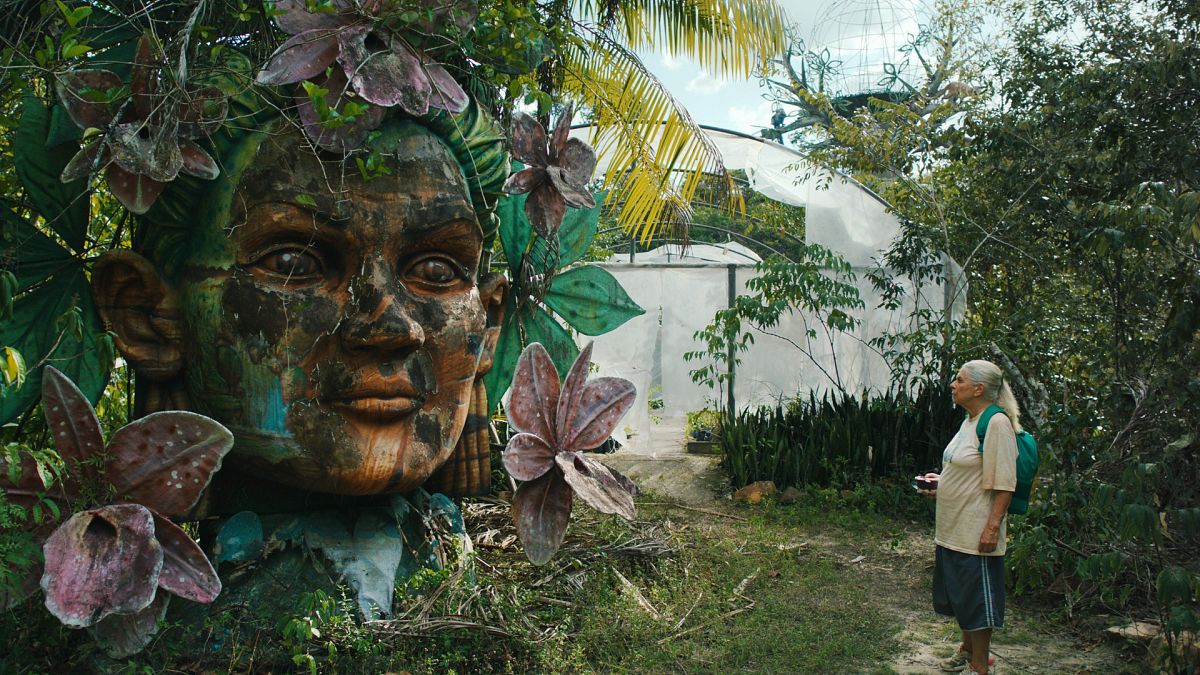Europe
Berlinale 2025 review: ‘O último azul’ (‘The Blue Trail’)

Brazilian Cinema on the Rise: The Journey of "The Blue Trail"
A Nation’s Cinematic Triumph
Brazilian cinema has emerged into the global spotlight with remarkable achievements, most notably the Oscar nomination for Walter Salles’ "I’m Still Here," marking the country’s first Best Picture nod. This milestone highlights a resurgence in Brazilian storytelling, blending vibrant narratives with profound social commentary. The Berlinale, a prestigious platform for cinematic excellence, now showcases another gem from Brazil: "The Blue Trail" by Gabriel Mascaro. This film not only competes for the Golden Bear but also stands as a testament to Brazil’s evolving cinematic identity, poised to captivate audiences and critics alike.
Navigating a Near-Future Dystopia: The World of Tereza
In "The Blue Trail," Mascaro crafts a hauntingly plausible near-future where Brazil’s government enforces a draconian retirement policy, relocating the elderly to isolated colonies. The story centers on Tereza, a spirited 77-year-old played by Denise Weinberg, whose life is upended when the retirement age is lowered to 75. zorun بهاsurrendering her independence and her job at a meat factory, Tereza embarks on a defiant journey along the Amazon River. Her quest for one last act of freedom leads her to unexpected encounters, including a rare snail with hallucinogenic properties, which offers glimpses into her destiny. This odyssey becomes a metaphor for resilience and hope amidst oppressive regimes.
A Powerful Rebuke to Ageism and Control
At its core, "The Blue Trail" is a poignant critique of ageism and authoritarianism. Tereza’s journey challenges the notion that older generations are burdens, instead portraying them as catalysts for change. Her defiance, both against the government and her family, highlights the struggle for individuality in a society that seeks to marginalize the elderly. The film subtly intertwines humor and dystopia, creating a narrative that is both entertaining and thought-provoking. Mascaro uses Tereza’s story to>Create a relatable yet futuristic world, where the elderly are not just victims but active rebels against oppressive systems.
The Director’s Vision: Subtlety and Strength
Mascaro’s direction in "The Blue Trail" is akin to a masterful symphony, blending subtle dystopian elements with a character-driven narrative reminiscent of Shōhei Imamura’s "The Ballad of Narayama." Unlike his previous film, "Divine Love," which depicted a neon-lit evangelical future, "The Blue Trail" presents a more understated vision of Brazil, closer to our reality. The absence of overt dystopian visuals allows the audience to focus on Tereza’s emotional journey, making the film’s message more resonant. Mascaro’s approach humanizes the narrative, ensuring that the dystopian backdrop serves to enhance the character’s depth rather than overshadow it.
Aesthetic Brilliance: Cinematography and Soundtrack
Visually, "The Blue Trail" is a treat, with stunning riverscapes and dynamic fish fights that add layers to the narrative. The film’s composition, led by production designer Dayse Barreto, creates a believable and immersive world. The soundtrack complements the visual brilliance, oscillating between haunting melodies and uplifting rhythms that mirror Tereza’s emotional state. These elements, combined with Weinberg’s nuanced performance, create a cinematic experience that is both aesthetically pleasing and emotionally engaging. The film’s unpredictably humorous moments further enrich its appeal, making it a memorable viewing experience.
Conclusion: A Film of Hope and Rebellion
In conclusion, "The Blue Trail" emerges as a formidable contender for the Berlinale’s Golden Bear, offering a compelling narrative that resonates universally. Through Tereza’s story, Mascaro delivers a powerful commentary on ageism and authoritarianism while celebrating resilience and hope. The film’s subtle approach to dystopia, combined with its emotional depth and aesthetic brilliance, positions it as a standout in contemporary cinema. As Brazil basks in its cinematic renaissance, "The Blue Trail" stands as a beacon of storytelling excellence, reminding us of the power of rebellion in the face of oppression and the enduring spirit of the human quest for freedom.


















